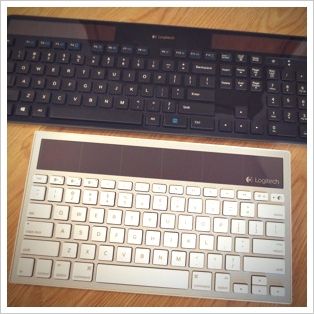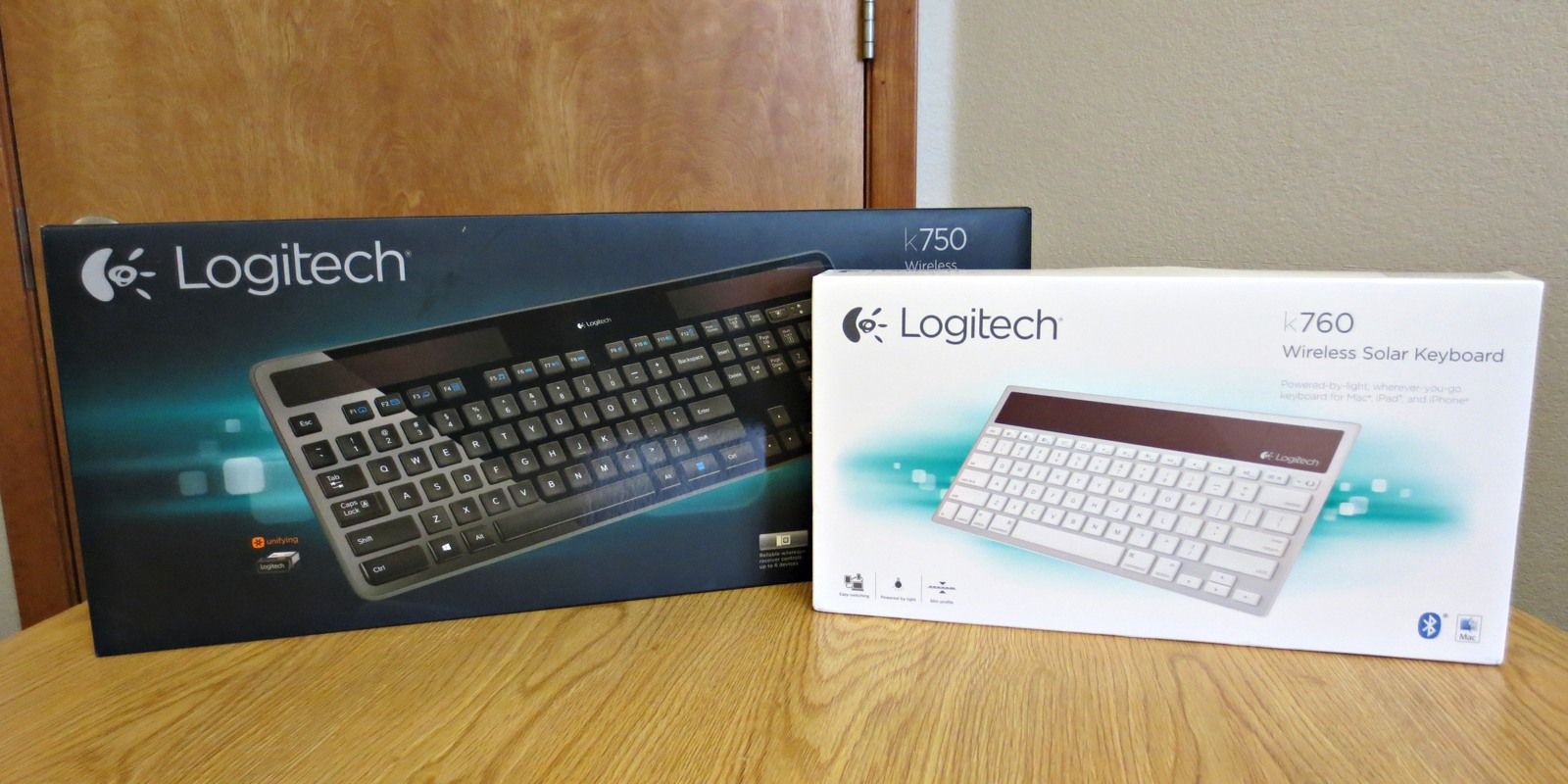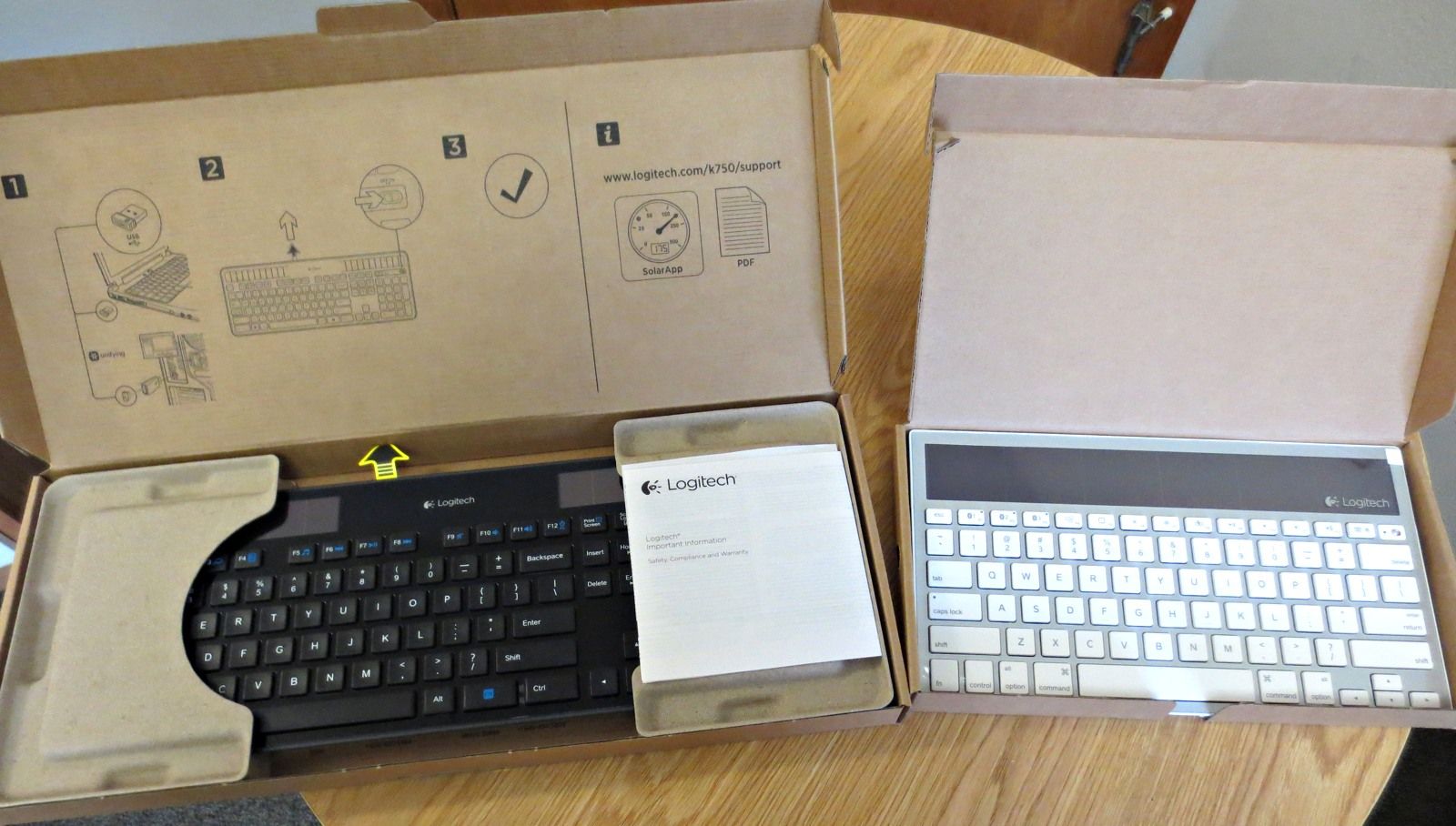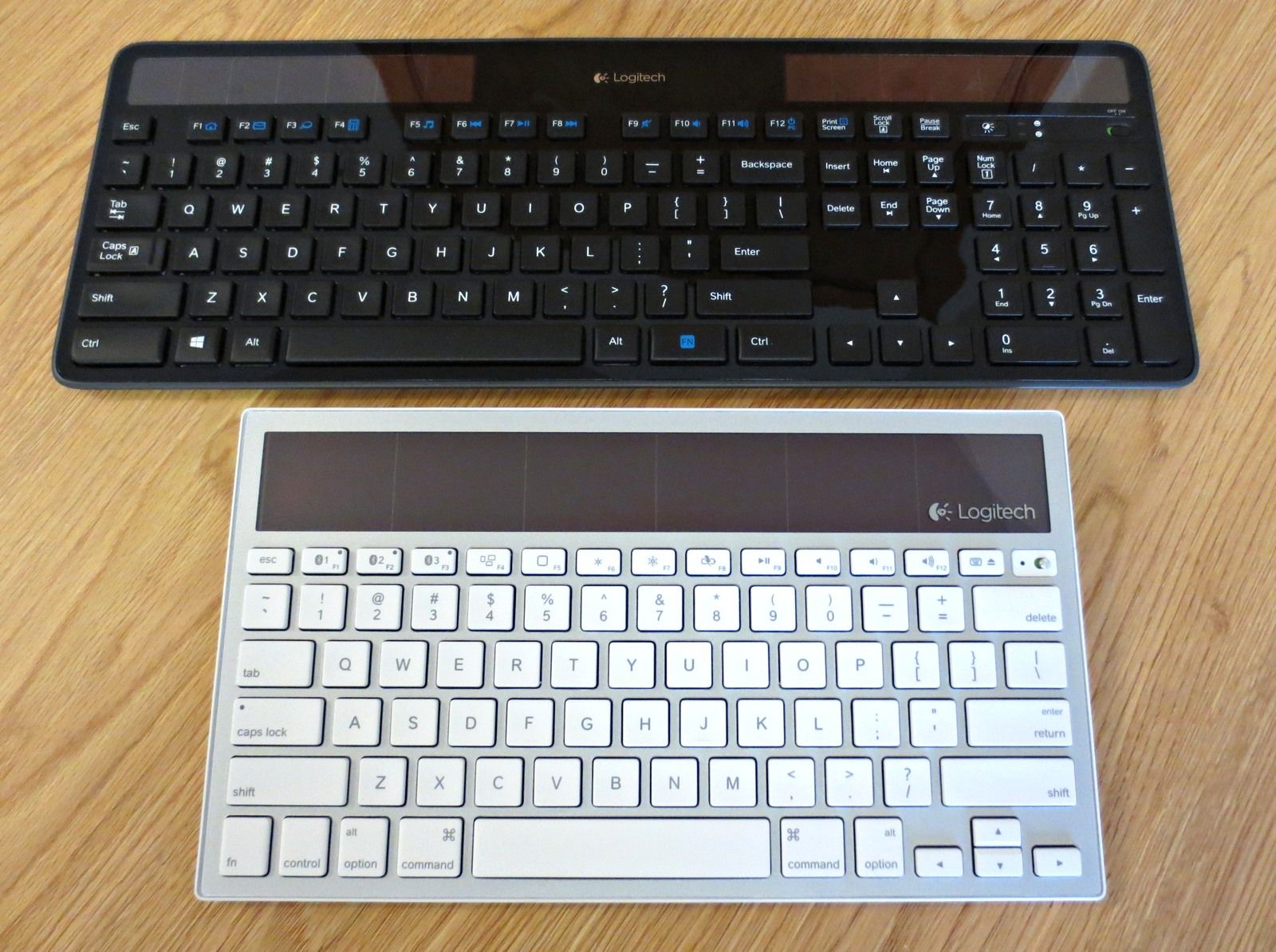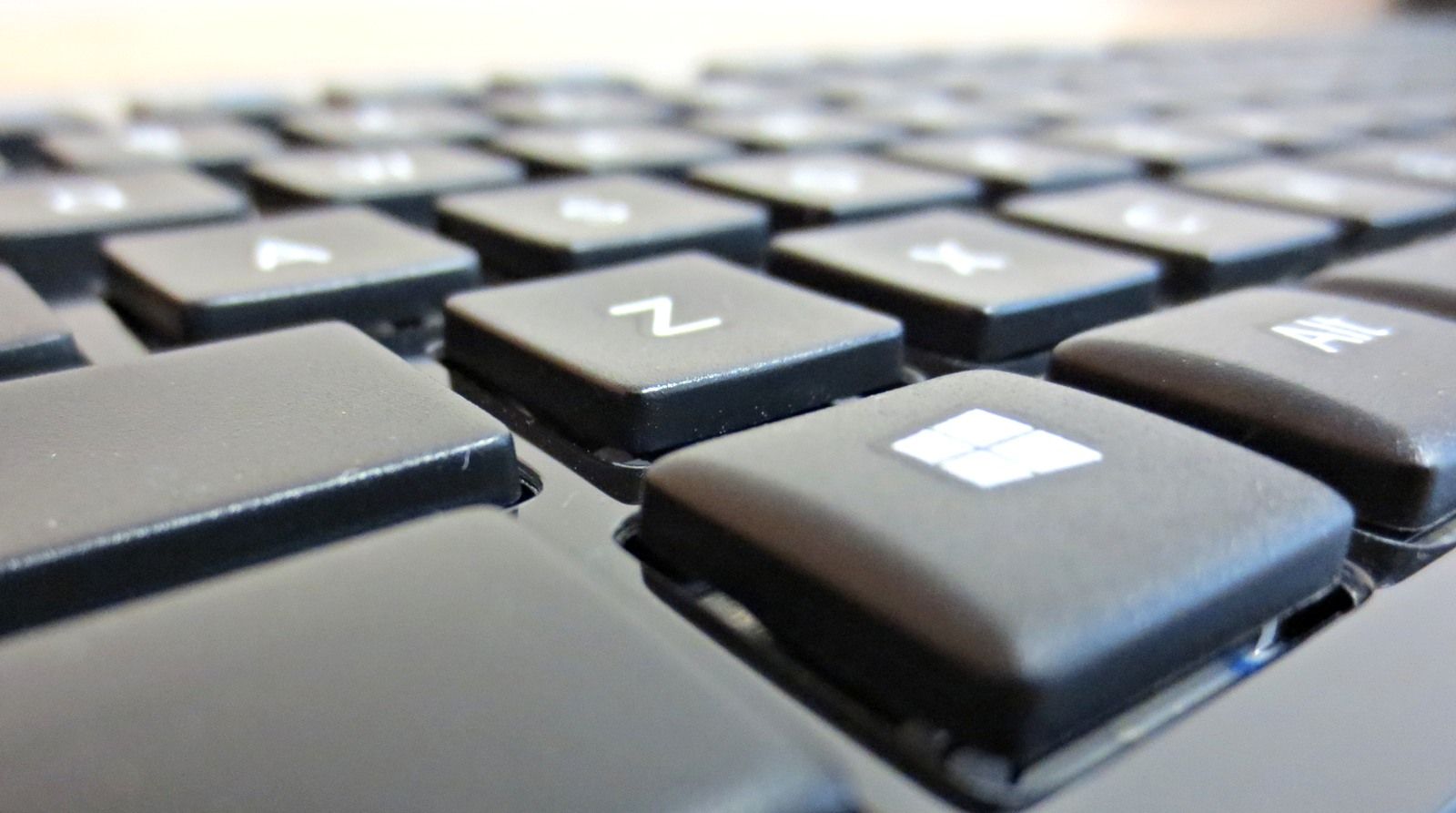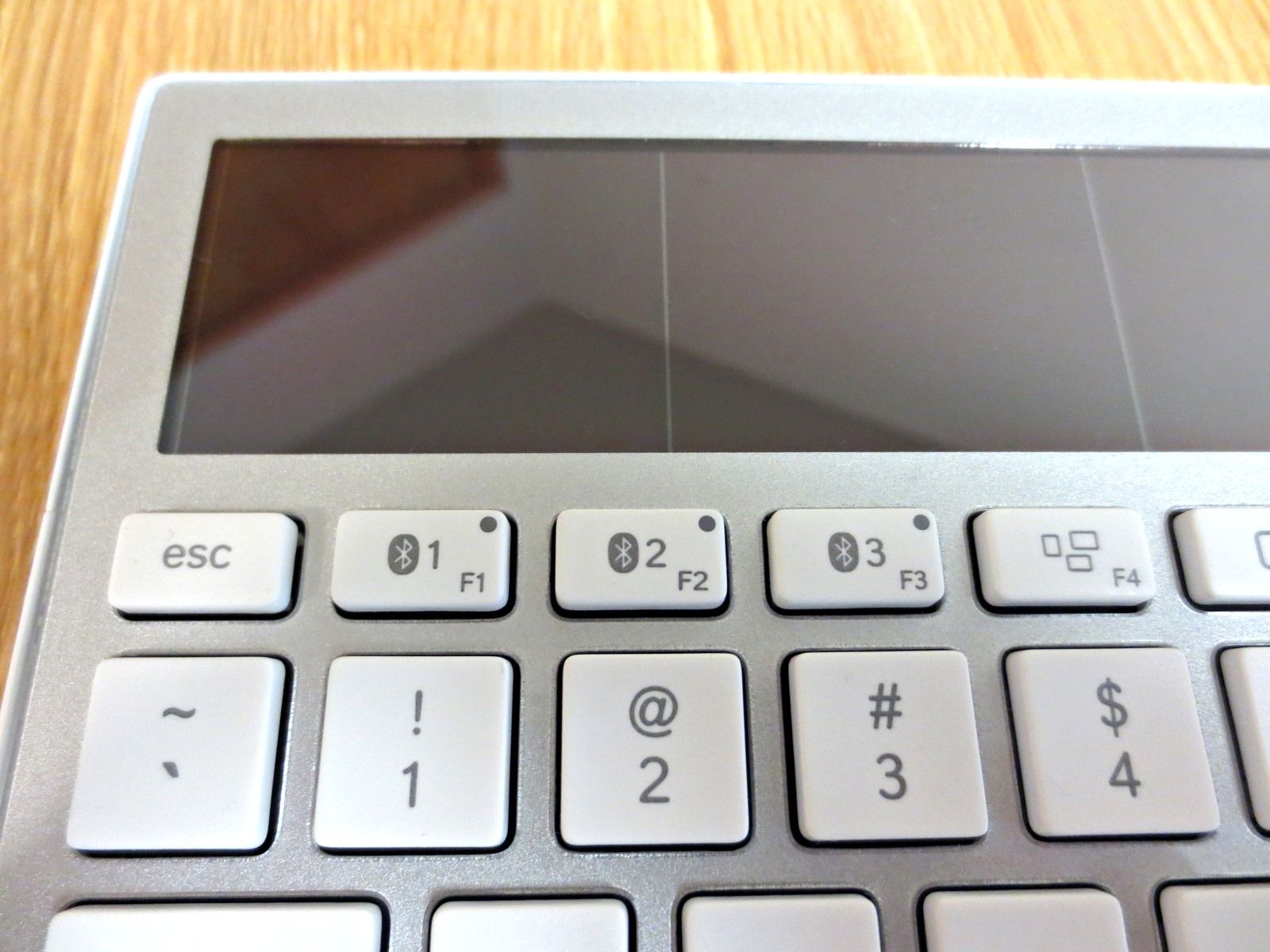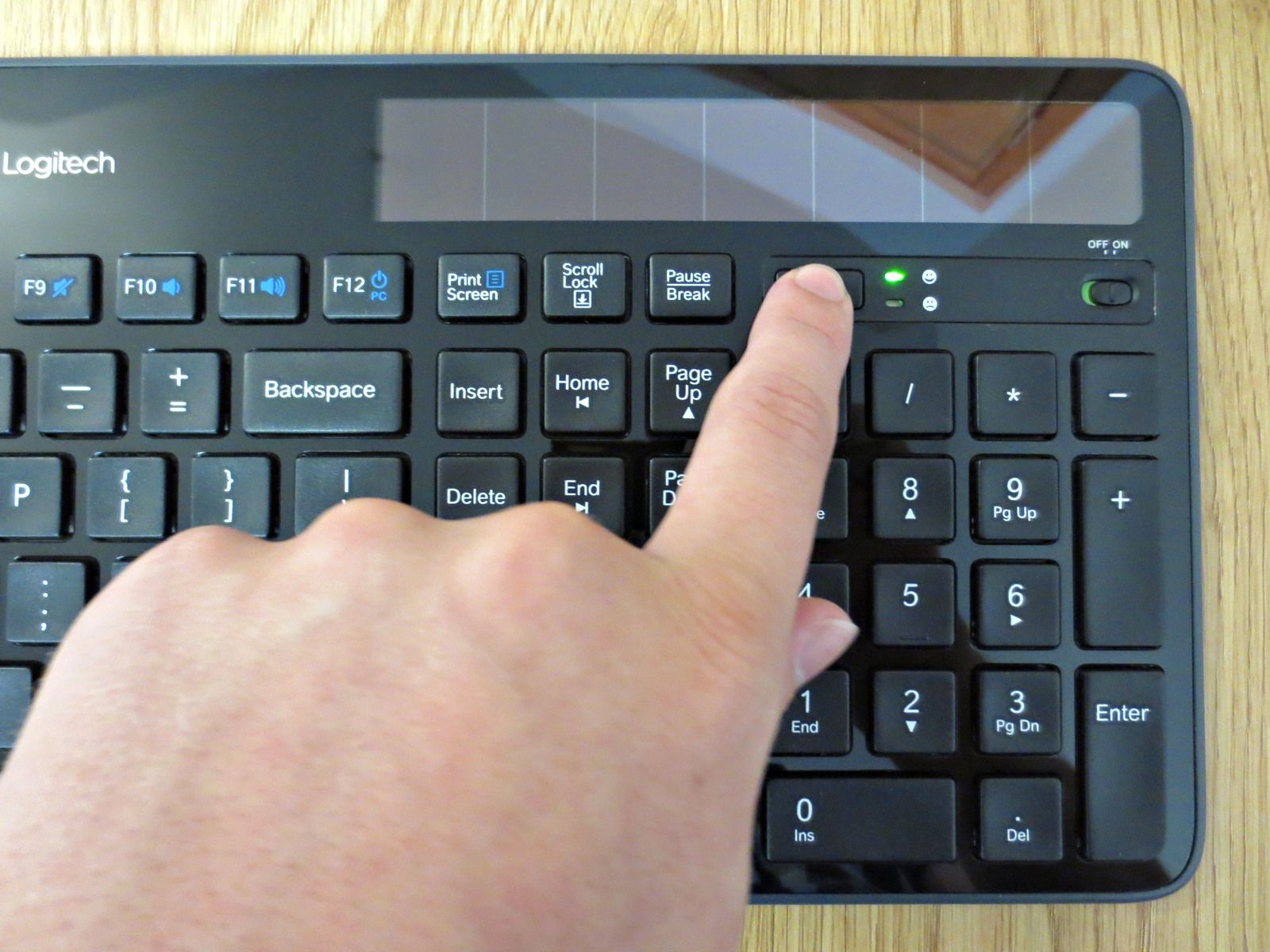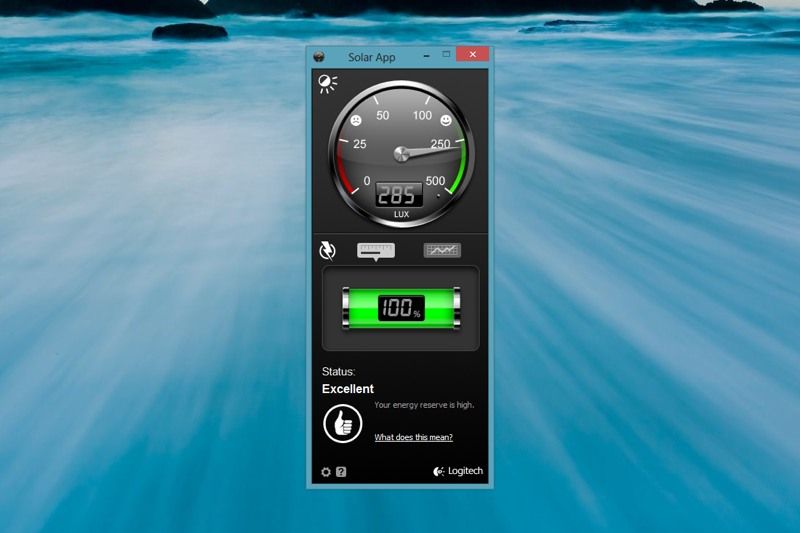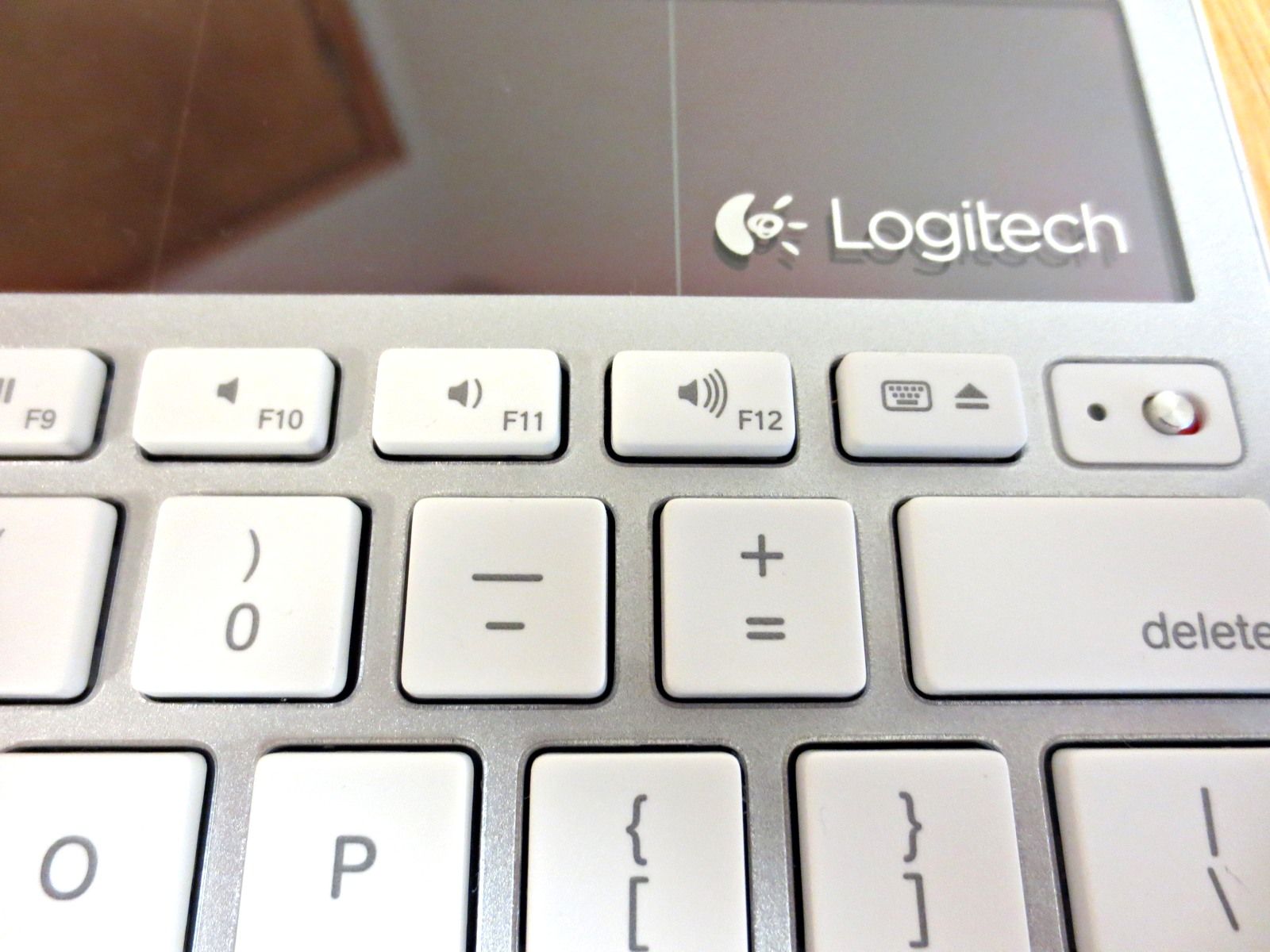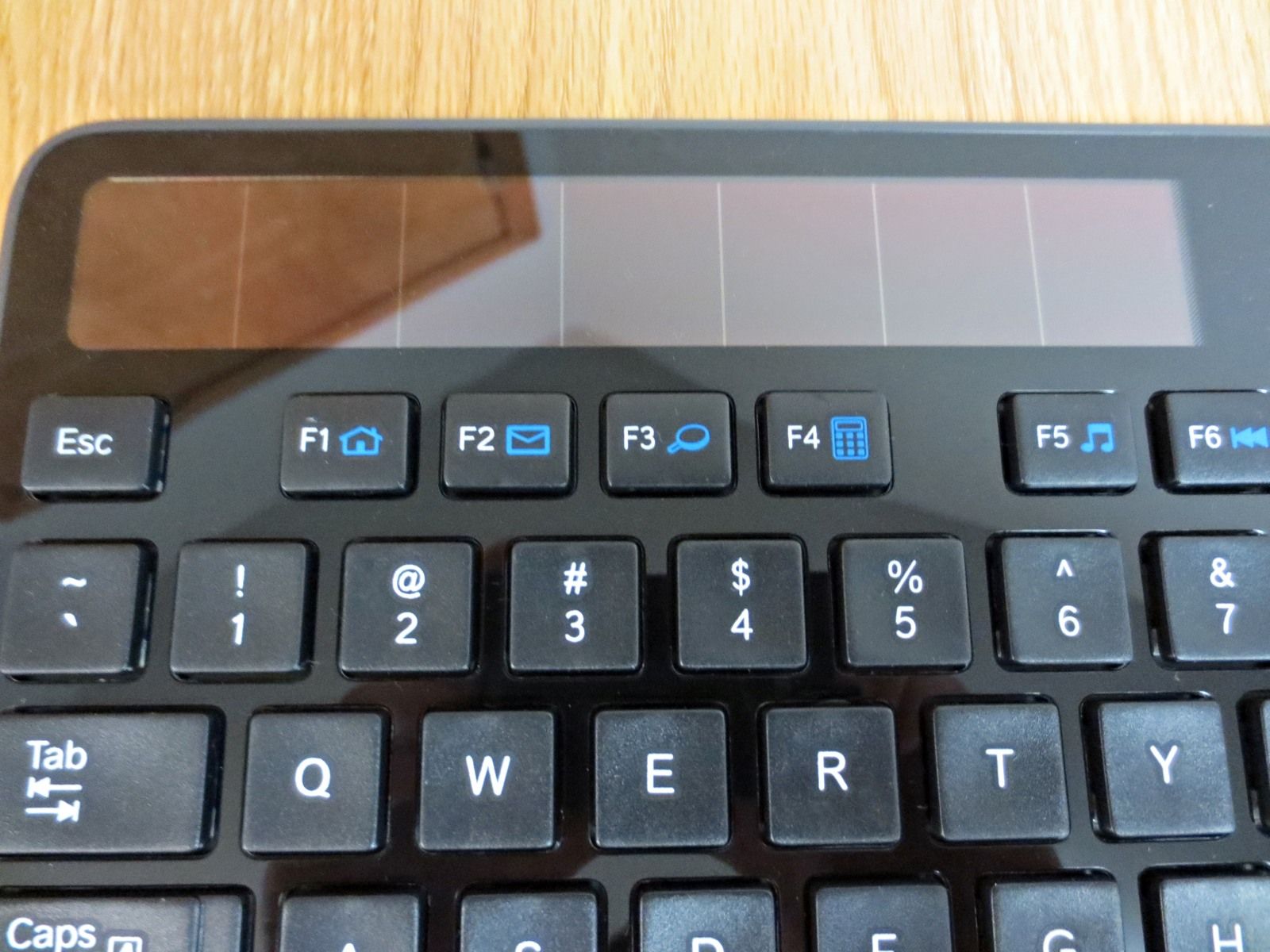Logitech Solar Keyboard K750
Wireless keyboards and mice have been historically undervalued because of unreliability in their wireless communications and constant need for replacement batteries. However, that was many years ago. Since then, wireless keyboards and mice have become much better. Now, they're very simple to use, don't require many battery changes, and offer you additional flexibility by going farther away from your computer than what a cord would normally allow.
At least, that's the promise presented today. To see if this was finally the case, I picked up a pair of keyboards to test out and see just how well they perform. But I took one step further and got solar keyboards to see if they could entirely replace the need to exchange batteries. Therefore, I reviewed the Logitech K750 (PC variant, although a Mac variant is also available) and Logitech K760 (Mac/iOS variant only) keyboards, both retail priced around $50-60 on Amazon.
I tested these solar keyboards on their build quality, typing feel (like key spring and such), wireless performance, and solar/battery performance. At the end of this review, you have a chance to win one of the keyboards!
Competitors
Surprisingly, Logitech is the only provider of solar keyboards, so you won't be able to find any competing products. The only solar keyboard models available are the two that I reviewed -- the K750 for PC and Mac, as well as the K760 for Mac/iOS -- so you'll only have a choice between the two if you're interested in a solar keyboard.
Packaging
The packaging for both solar keyboards is rather simple -- it includes the keyboard, some materials to read for the K760 or printed instructions on the box for the K750. And in the case of the K750, a Unifying wireless receiver (with extending dongle for hard to reach places like the back of your desktop computer) as well as a microfiber cloth -- more on the Unifying receiver later.
Design and Build Quality
The Logitech K750 is a full-sized solar keyboard (pictured below, black), intended to be used with desktop computers or laptops, and comes in in PC and Mac versions. As mentioned above, it uses Logitech's Unifying technology, which means that you can use the same receiver to attach up to 6 Unifying-capable devices -- like their T620 touch-mouse or T650 touchpad -- rather than having a receiver for each device.
The K760, on the other hand, is a smaller solar keyboard. It doesn't feature a number pad and is meant to be used with Apple devices as it only comes in a Mac/iOS variant. As such, the keyboard uses Bluetooth -- no receiver required! On my Linux system, both solar keyboards worked, although the K760 posed a few Bluetooth pairing issues that were solved by following these instructions. However, Windows doesn't support the Mac variant and vice versa (or at least it seems to difficult to configure).
The build quality of both solar keyboards is excellent. Although both are made of plastic, they are sturdy and hold up to a punchy typist's hammering. I'm pretty content about that rubber feet to keep the solar keyboard stable and prevent slipping; the rubber is a bit hard so I wish it would be softer in order to provide more grip, but they are very flat and offer lots of gripping surface area. I especially like the K760's on/off switch as it follows Apple design cues perfectly.
The K760 is permanently tilted because of how the bottom is designed, while the K750 has adjustable feet that you can pull out or retract. However, I don't like the feet very much because they feel pretty flimsy although I'm sure that they could hold up to more force than I think they would. Therefore, I think that both solar keyboards are poor in this category because the feet of the K750 could be sturdier, and the K760 should have feet so that users can retract them to provide a more ergonomic typing experience. Other than these points, I have no complaints about the keyboards.
Feel
Typing on these solar keyboards is nice. Like other keyboards, it takes a bit of time to get used to them because the keys are just oh-so-slightly differently spaced compared to my laptop's keyboard.
The keys feel good to me because they have the right amount of spring. Both solar keyboards offer concave keys, so your fingers fall more easily into the center of the key. Over time, this can help train yourself to hit the middle of keys rather than the edges, providing a more consistent typing experience. In the end, after getting used to the spacing (especially that of the K760), I liked both solar keyboards a lot.
Wireless Performance
The two solar keyboards performed extremely well. I had no issues with them whatsoever, such as lag, missed keystrokes, or any other imaginable issues. In order to provide some competition between the two keyboards, I tested to see how far away I could go with them and still have the computer register a keystroke. It turns out the K760 could go farther, probably because a Bluetooth signal can travel farther than the Unifying signal.
Logitech's Unifying receiver is a tiny dongle that can connect up to 6 other Unifying-capable Logitech devices. You'll need to download the Unifying software from Logitech in order to configure the dongle to accept the input of multiple devices -- by default each device you buy is configured to work with only the dongle it comes with. The dongle works by communicating with other devices via the 2.4 Ghz wireless band -- it doesn't seem to be Wi-Fi, however, as no wireless networks show up and Logitech makes no mention that it's Wi-Fi. Communications are 128-bit AES encrypted, though. If you want to look up resources about the Unifying receiver, you can find them here and here.
Unlike the K750, the K760 has the capability to switch between three Bluetooth devices to make it easy to have the solar keyboard configured for more than just your one Mac or iOS device. For the K750, you'll just have to move the receiver from device to device if possible -- otherwise the K760 may be better suited if those devices support Bluetooth.
Solar Power!
Finally, I tested out the most interesting feature of the two keyboards -- the solar panels.
Since there isn't a lot of natural light that comes into my room, I left the lights on in my room all day to charge the solar keyboards. Then I covered the solar panels with a few sheets of cut-up paper in order to test how long the charge will be held. After about a week later, it was still working just fine -- not surprising, considering Logitech claims that their keyboards can remain in the dark for an entire three months before they run out of charge. Therefore, using the solar keyboards in the middle of the night is not a problem as they'll be more than charged enough to handle the task. And then they'll recharge during the day. You won't have to worry about dead batteries again!
What I also absolutely love about the K750 is that Logitech offers a "Solar App" for both Windows and Mac OS X which allows you to view stats about the solar keyboard whenever you hit the power check button. In the app, you'll see keyboard's battery charge level (which is great to know in case it gets low for whatever reason) as well as the amount of light that the solar keyboard is receiving. If the amount is unusually low, that may be a sign that you need to clean off the solar panels. Thankfully, the K750 comes with a microfiber cloth that makes it easy to keep the solar panels spot-free. The K760 has no support for the Solar App since it uses Bluetooth, so you'll just have to clean it regularly and keep it in light to ensure that it's charged.
Final Ideas
I think it'd be really cool if Logitech offered a solar keyboard that is also illuminated. I'm sure this could somehow be possible thanks to LED technology, and I'd be fine if the keyboard could only last a day or two instead of three months because it could just be recharged during the day anyways.
Conclusion
Overall, I really like these solar keyboards. I especially like the solar panels, because it avoids the stress of periodically having to change out the battery, reduces waste from used batteries, and uses green energy rather than electricity from other sources. However, if you already have a wireless keyboard and want to be green (and don't mind changing batteries), you can always get yourself some rechargeable batteries and a solar recharger. However, buying the rechargeable batteries and the charger just for one device could end up costing more than just buying the K750 or K760. It could be worth your money if you also had a wireless mouse -- or something else with batteries for that matter.
Competition Winner
Congratulations, Lisa Clark! You would have received an email from jackson@makeuseof.com. Please respond before November 14 to claim your prize. Enquires beyond this date will not be entertained.

